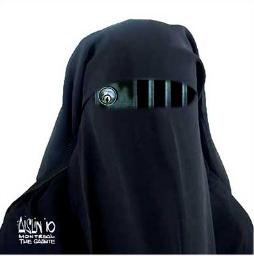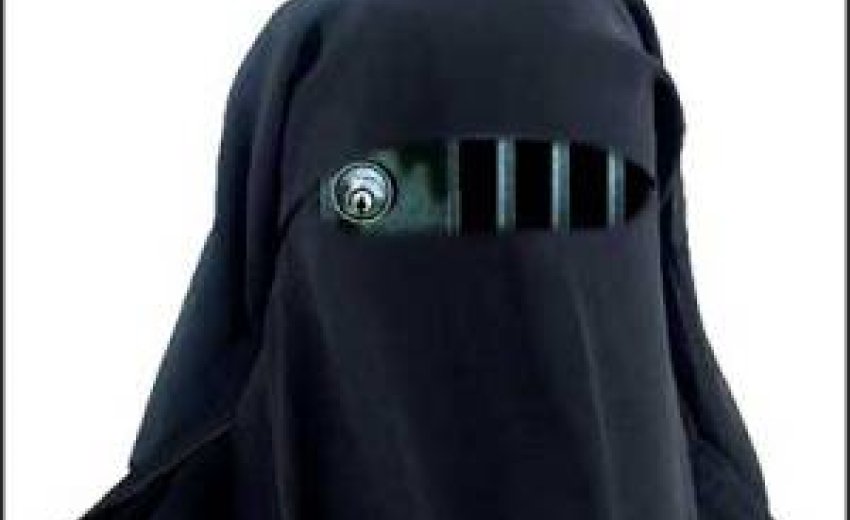 Canada has long boasted an international reputation for tolerance, and
rightly so. We tend to welcome newcomers respectfully and with
reasonably open arms. And for the most part, we celebrate the diversity
that has come increasingly to define, and enrich us.
Canada has long boasted an international reputation for tolerance, and
rightly so. We tend to welcome newcomers respectfully and with
reasonably open arms. And for the most part, we celebrate the diversity
that has come increasingly to define, and enrich us.
(I mean, of course, the Canadian collectivity. Individually, we do not always do ourselves quite as proud.)
As the nation of immigrants we have always been -- that is to say, a kind of metaphor for hope and faith in the future -- we have learned how to appreciate each new thread added to the fabric of our identity. Most Canadians, it is fair to say, do try to be culturally sensitive.
But there are limits.
We Canadians may be people who say "sorry" when somebody steps on our toes, but we're also people who can be downright aggressive in the defence of rights and freedoms. Think of our history at home and abroad. Historically, culturally, legally, we do not, as a nation, countenance abuse, intolerance, persecution or anything else that abrogates human rights.
So the face-covering question is troubling indeed. Whether it wears the name 'niqab' (as it has in recent news stories out of Quebec), or 'burqa' (as it routinely does in stories from Afghanistan), the material that covers a woman's face in the name of Islamic observance challenges all of us who are seeing it more and more across the Canadian landscape.
In Quebec, with its significant population of Muslim newcomers, the issue has risen noisily to the surface in recent days after an Egyptian immigrant refused to remove her 'niqab' for government-sponsored French language lessons. The instructor had requested it because the woman's pronunciation behind the veil was unclear, but she refused, twice. The woman, who hopes to work as a pharmacist, is charging religious discrimination in a complaint to Quebec's human rights commission.
And in a separate development just last week, that same commission ruled that a woman must uncover her face to prove her identity when applying for medicare.
Canadian observers of different persuasions -- including liberals, who have traditionally and rightly been squeamish about cultural insensitivity -- have condemned Quebec's position. It's proof of bigotry, they say. Intolerance. "Minority-phobia," according to one Calgary columnist.
But is it?
Maybe it's a case of public security. In our culture, where the masked face has always been a totem of outlawry, is it far-fetched to suggest that a veiled woman represents the potential for fraud? Is that masked student taking the test, or the pharmacist mixing your meds, really the person she's supposed to be?
And maybe the Quebec position is also a tough (and courageous) denunciation of a symbol that announces blatant gender discrimination, intended or not. What is religious expression in, say, Egypt, can look like the public debasement of women on Canadian soil.
It's more than simply a "when in Rome" question. The Canadian version of "when in Rome" involves a vastness of multicultural potential. When in Canada, you could happily wear a turban, a yarmulke, a headscarf, a tam o' shanter, a tuque, even a nun's wimple in public, and you'd fit right in. Nobody cares what clothing you adopt here, or whether or not it reflects a particular religion or ethnic heritage. And no one thinks you should be told what you can or cannot wear.
But that's not what the public face-covering debate is about. While non-Muslims must leave the religious aspects of the discussion to Muslims (because there is apparently a sharp diversity of opinion on this within Muslim communities), other elements of the debate should be clear to everyone.
There are many things we do not do in Canada, things we will never do. We do not make it a crime to convert to another religion, as they do in, say, Saudi Arabia, where abandoning Islam for Christianity can get you thrown in jail, or worse. In fact, we don't take a position at all on an individual's religion or lack thereof, a subject that is none of the state's business.
We do not insist legally that women wear particular clothing (as is the case, again, in many parts of Saudi Arabia), or dictate that not only must a woman's face and form be fully hidden, but that she must avoid bright colours and other "provocations."
We do not condone female genital mutilation, an act of butchery still practised routinely throughout Africa and into the Middle East, which we have designated a criminal offence. We do not execute people for their sexual orientation. vWe object strenuously to cultural conventions -- for example, bride-burning and female infanticide -- that, while hardly legal, are sickeningly commonplace on the Indian subcontinent and in Asia.
We do not accept any of these things, and we rightly condemn them. Many newcomers to Canada might have come from cultures where such laws and practices exist, and we can certainly be sensitive to that reality. But we will not be adapting our basic understanding of morality or modifying our sense of human rights to accommodate their former reality here.
Simply put, these things are wrong, by any standard of evolved civilization. And we have no difficulty saying so.
Why, then, are we so diffident about public face-coverings?
Community security issues matter. So do fundamental perceptions of discrimination.
The banned 'niqab' should be a simple matter of black and white. Without apology.
Janice Kennedy writes here on Sundays.
E-mail: [email protected]
© Copyright (c) The Ottawa Citizen

